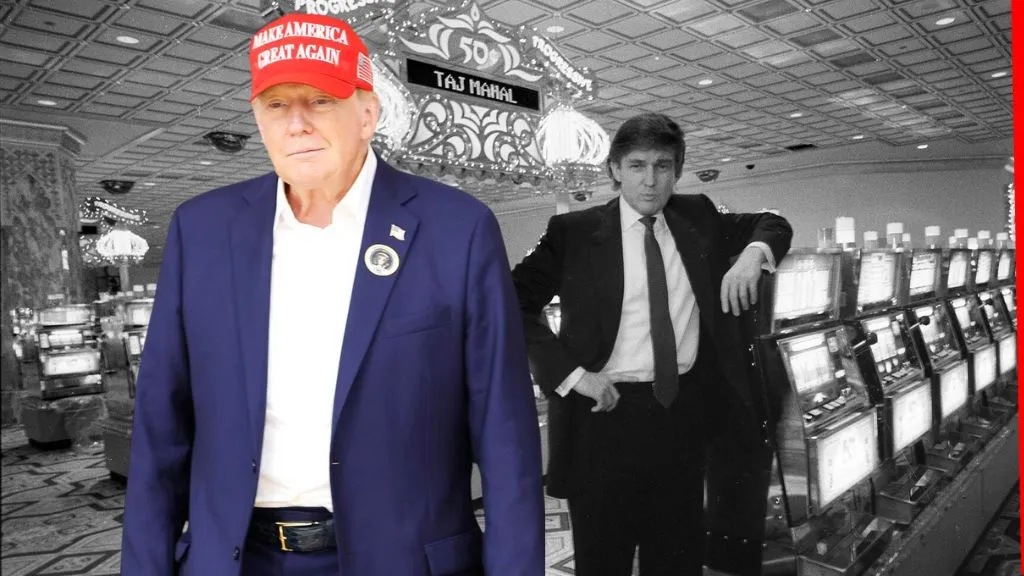
Donald Trump’s victory in the 2024 U.S. presidential election could herald a complex new era for sports betting and online gambling, driven by his business-friendly approach and potential conservative appointments. Trump’s history suggests an inclination toward deregulation, yet his administration’s conservative leanings may curb the rapid expansion of gambling markets or introduce tighter regulations on online betting.
Under Trump’s previous term, his approach was generally hands-off, allowing states to set their own gambling policies. This aligned with a federalist approach, spurring state-by-state legalisation, especially after the landmark Murphy v. NCAA ruling in 2018. However, inconsistencies in his administration’s stance, including the reinterpretation of the Wire Act to limit cross-state gambling, have raised questions about Trump’s vision for the industry. Now, his anticipated conservative judicial and cabinet appointments could place a drag on gambling expansion or increase scrutiny on the burgeoning online betting sector.
Trump’s familiarity with the casino industry—especially his previous ownership of Atlantic City properties—has reassured some industry stakeholders who hope for a light regulatory touch. Yet, his Agenda 47 platform makes no explicit commitment to sports betting or gambling expansion, leaving room for speculation. Industry observers suspect Trump might lean toward deregulation but caution that his unpredictable style could bring about unexpected constraints.
Momentum for sports betting legalisation across the U.S. is robust, transcending party lines and demographics. Nonetheless, Trump’s return to office raises questions about whether he might introduce new federal obstacles or empower states to regulate at their discretion. His presidency could thus signify either an era of opportunity or limitation, depending on how his administration balances business growth with conservative oversight.
Kamala Harris’s campaign struggled to capture the enthusiasm needed for a decisive victory, failing to resonate with key voter demographics. Critics cited her difficulty in establishing a strong connection with the electorate and in articulating a vision capable of rallying broad support. If she had won, her administration would likely have continued the Biden-Harris approach of deferring gambling regulation to the states, maintaining the patchwork of state policies with minimal federal intervention. This would provide stability for states pursuing sports betting expansion but without accelerating a unified, national framework.
At the federal level, a Trump administration may prioritise business interests and revenue over restrictive gambling policies, evident from his first term’s economic agenda. However, potential appointments from conservative states could signal resistance to gambling expansion. Figures like Texas Governor Greg Abbott or Lieutenant Governor Dan Patrick, both vocal opponents of casino expansion, could exert influence, especially in regions that have traditionally shunned gambling.
While Texas is notoriously anti-gambling, some analysts believe a Trump victory could motivate pro-gambling advocates to lobby for changes in Texas and other conservative strongholds if key opponents exit. States with untapped markets—most notably Texas and California—are pivotal for the gambling industry. With Trump’s sway in Republican-led states, Texas, in particular, could see intensified legislative efforts, although much depends on his administration’s key appointments.
Online gambling could face increased scrutiny, as conservative policymakers often cite concerns about gambling addiction, fraud, and youth exposure. Trump’s emphasis on traditional business models suggests his administration might explore stricter oversight for online gambling, particularly if backed by socially conservative appointees. Heightened regulation would likely focus on mitigating social risks associated with the fast-growing online sector.
However, any significant national regulation would need Congressional support. Trump’s support for state autonomy, in line with the post-2018 landscape, could deter federal intervention, letting states regulate as they see fit. This would benefit established markets like New Jersey and Pennsylvania, whose online and sports betting industries have flourished under localised regulations.
Legacy of Trump’s casino empire
Though Trump’s political identity may now overshadow his business ventures, his Atlantic City casino empire offers a telling narrative. Beginning in the 1980s, Trump expanded aggressively into the casino world, acquiring high-profile properties such as Trump Plaza, Trump Marina, and the opulent Trump Taj Mahal (pictured above). Although grand in ambition, the empire was consistently plagued by debt and repeated bankruptcies in 1991, 2004, 2009, and 2014. By the final bankruptcy, Trump’s stake had dwindled to a symbolic 10 percent for branding purposes, leaving much of the control in the hands of investors like Carl Icahn.
Despite his aspirations, Trump’s casino ventures ultimately left a complex legacy for Atlantic City. The “eighth wonder of the world,” as he once described the Taj Mahal, ended in foreclosure, underscoring the volatility that marked his tenure in the industry. Today, Trump’s casino legacy is largely historical, with his former properties rebranded and restructured, yet they remain a testament to his high-stakes approach.
The U.S. gambling industry is poised for further growth, but with a Trump administration back in place, the future is unpredictable. The industry, lawmakers, and gambling advocates are closely watching whether Trump will lean toward deregulation or assert federal constraints. The balance of power between state autonomy and federal oversight will be crucial, with conservative appointments likely to influence the speed and scope of expansion. Sports betting’s future may ultimately hinge on Trump’s policy stance, an intersection of deregulation, conservative pressures, and his own brand of unpredictability, all of which could shape a fragmented and varied regulatory landscape across the United States.